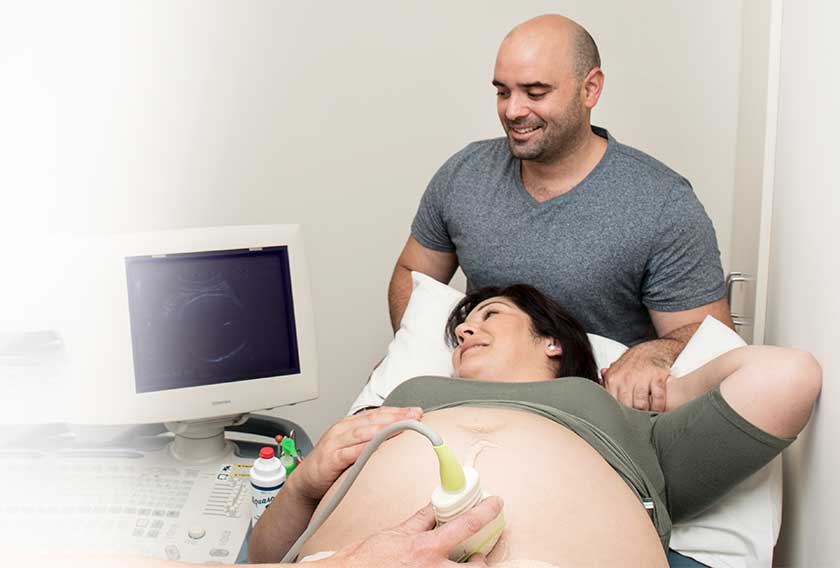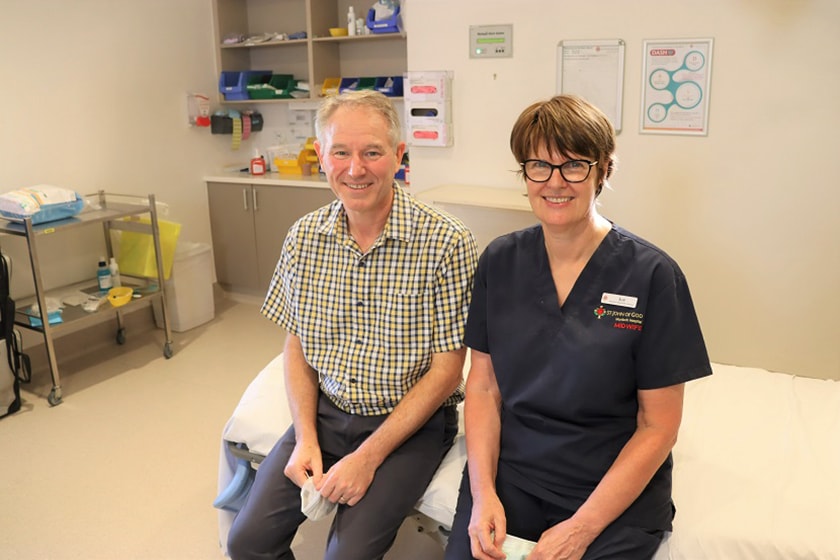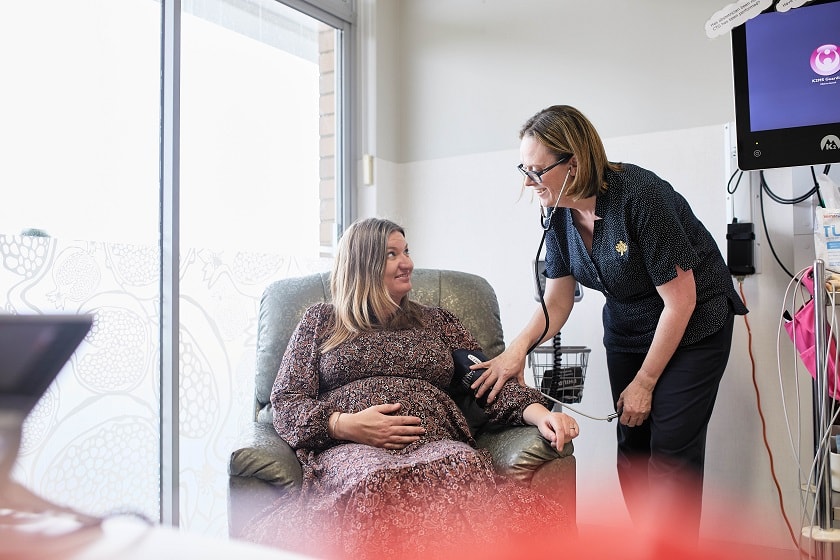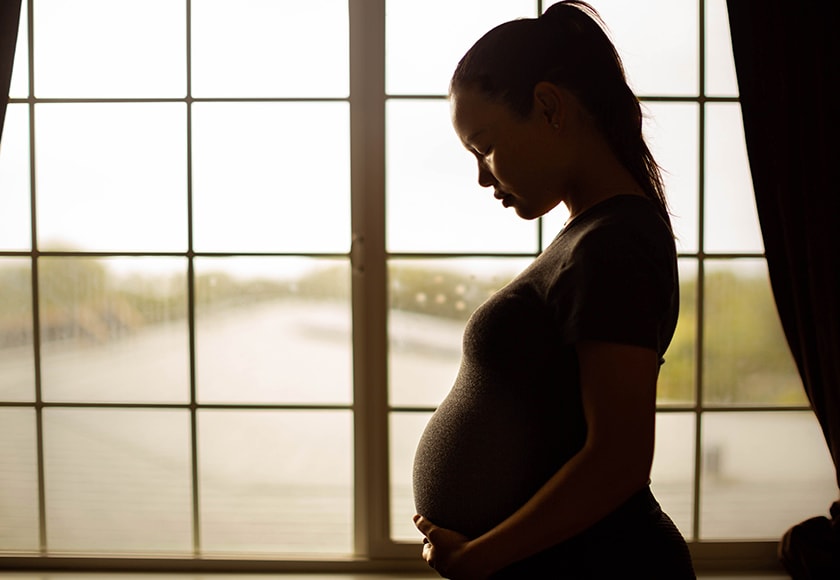Common pregnancy scans
1. First trimester (dating and heartbeat) ultrasound
Some women will have an early ultrasound to confirm the dates, check for the baby’s heartbeat and look for twins.
If you have experienced any bleeding or cramps, you obstetrician will certainly recommend this scan.
2. Nuchal translucency or early fetal development ultrasound
An ultrasound is offered to all women at 11 to 14 weeks.
This may be part of the first trimester screening (FTS) to assess the baby’s risk of a chromosomal abnormality or in addition to the non-invasive prenatal testing (NIPT) to check for structural problems.
This is an optional screening test and your obstetrician will discuss the pros and cons in detail.
3. Anatomy ultrasound
This is an important scan done between 19 and 20 weeks of pregnancy. It is a detailed ultrasound checking your baby’s anatomy including its brain, heart, kidneys and limbs.
You are generally able to find out the baby’s gender at this scan (if you wish).
The sonographer will also check the placenta, amniotic fluid and the length of your cervix.
4. Third trimester ultrasound
Some women are offered a scan during the third trimester to check on their baby’s growth and wellbeing.
Personalised care
Every pregnancy and every obstetrician are different. You may have other scans recommended to you but your doctor will explain these at the time.
Some obstetricians perform an ultrasound themselves at each antenatal visit.
It is always important that you discuss your own care with the obstetrician looking after your pregnancy.












